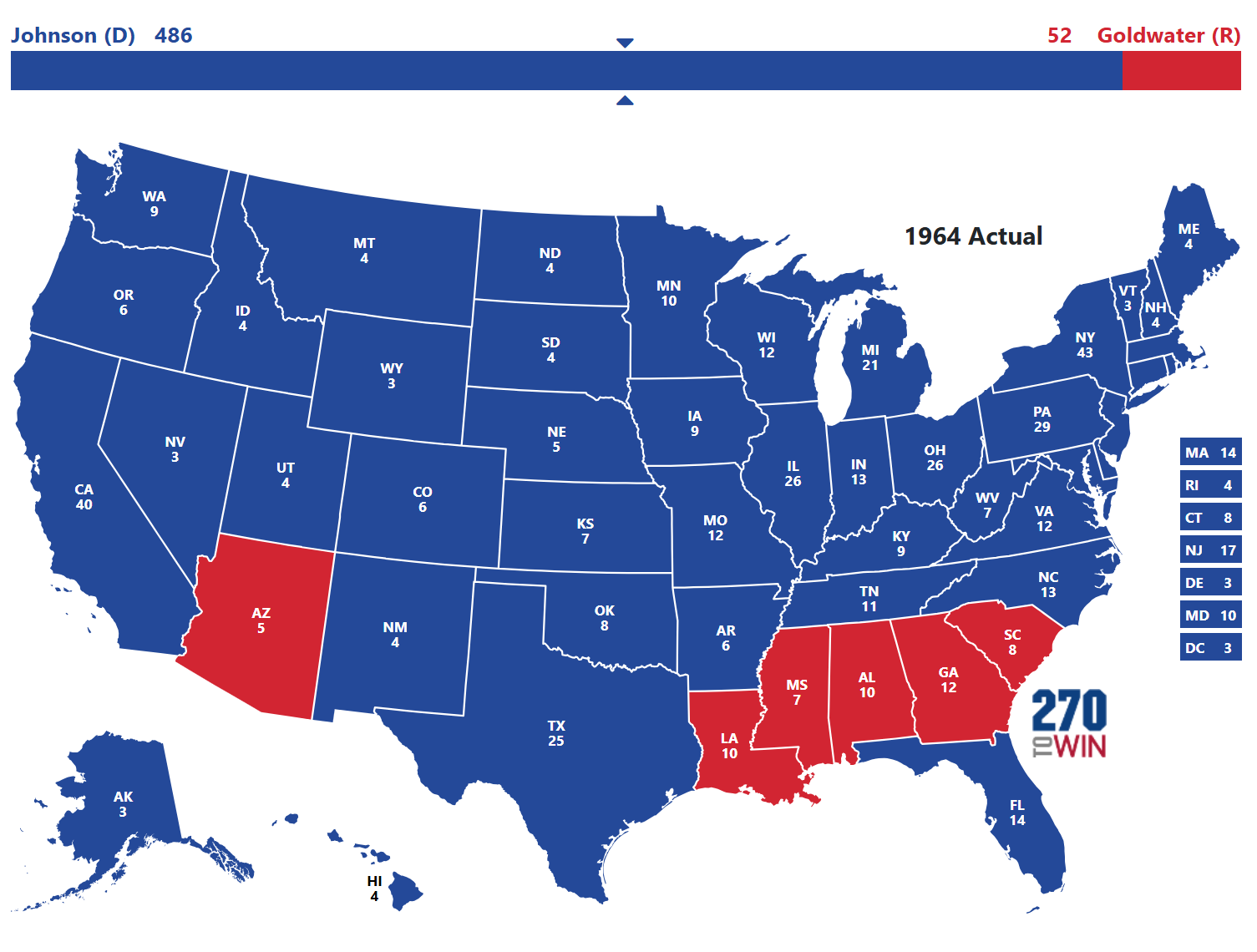Jan. 12, 1964–
“ . . . Were it not for the divorce and remarriage issue that overshadows his entire political future, he would almost certainly be the favorite, against Senator Goldwater and the field. . . ”
Instead . . .

Barry Goldwater, with only 39% of the total vote, won his home state of Arizona and 5 southern states. And person doesn’t have to be a super deep student of American political history to realize, Hey, this kind of regionalism is probably not real great for the body politic.
And so . . .
What if Gov. Nelson Rockefeller of New York had been the nominee . . .
Last edited:

